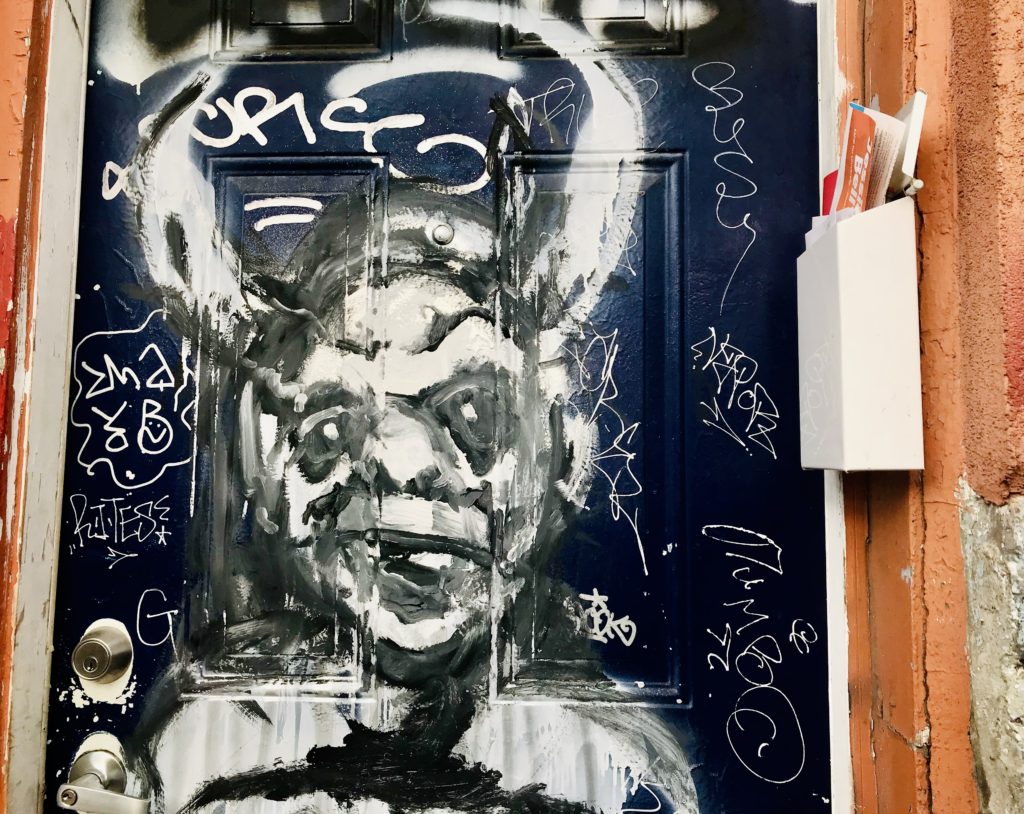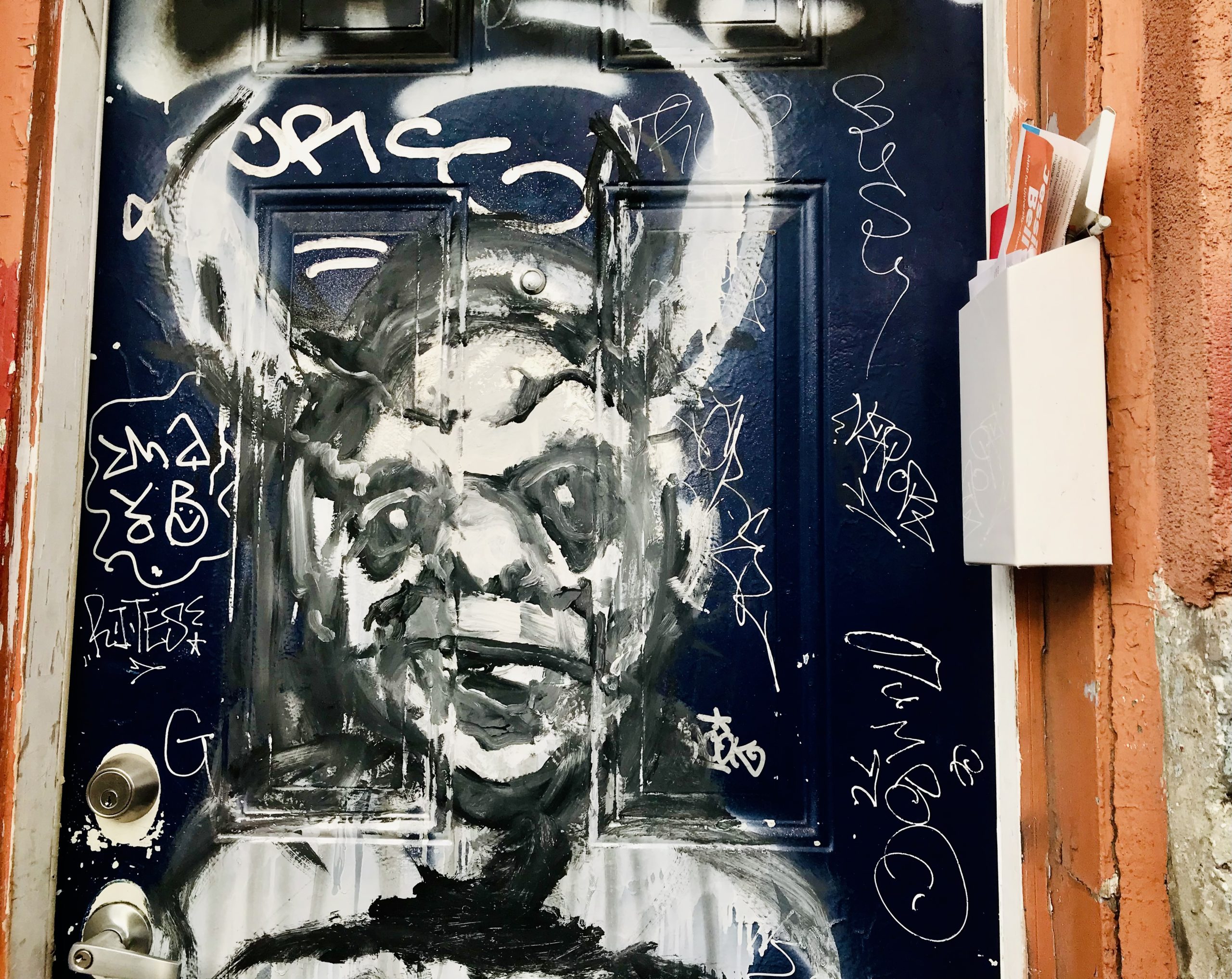By Yaldaz Sadakova

Before I started writing about my experiences of immigration and exclusion a few years ago, I spent almost a decade in journalism. A surreal decade during which I covered stories from New York City, Sofia, Brussels and Toronto.
This isn’t as glamorous as it sounds, partly because I did all this work in the lower rungs of the news industry.
Throughout my journalism career, I was constantly and viscerally drawn to reporting on underprivileged communities, without quite understanding why.
At my last media job—a magazine role in Toronto—one of my editors told me I was great at producing interesting story ideas, but my ideas focused mainly on issues of marginalization. He said I had to broaden the things I wrote about so they could appeal to larger segments of our audience. I took his criticism as a compliment.
I realized only recently that my preoccupation with marginality was my indirect way of dealing with being a minority—an outsider everywhere—my entire life.
The Limitations of the News Mindset
During my journalism years, I had no idea how to relate to the unprocessed trauma caused by my experiences of chronic exclusion and discrimination.
I didn’t have a social justice and oppression framework to understand my own marginalization. I didn’t have the words to explain what was wrong. My pain was an amorphous mass buried in my subconscious, so it was unnamed.
Also, as a journalist, I believed that only information gathered through research and interviews amounts to writing material. I didn’t think of my own experiences as legitimate writing material. I didn’t see them as something that someone else could be interested in, although I vaguely understood that the things which had happened to me were indicative of larger social issues.
True to my journalistic training, I believed that my insights and observations were insignificant, something that could interfere with my objectivity and news judgement. “Your opinion and two bucks will get you on the subway.” Those were the words of one of my J-School instructors and they always rang in my ears. Back when he said that in 2007, a New York subway ride cost $2.
Of course, journalism is designed to teach its practitioners to discount their own impressions and lived experiences, especially if they belong to an underrepresented group. I suspect the same is true for academia and other fields where you are required to write dispassionately.
As Somerset Maugham says in his memoir The Summing Up, “There is an impersonality in a newspaper that insensibly affects the writer. People who write much for the press seem to lose the faculty of seeing things for themselves; they see them from a generalized standpoint, vividly often, sometimes with hectic brightness, yet never with that idiosyncrasy which may give only a partial picture of the facts, but is suffused by the personality of the observer. The press, in fact, kills the individuality of those who write for it.”
The Importance of Telling Our Own Stories
I left journalism six years ago and that’s when I started writing about myself.
Awkwardly and instinctively, I groped my way into memoir writing. What drove me was anguish, anger and powerlessness, rather than confidence. Despite being an introvert and a private person, I started writing publicly about painful things I hadn’t shared with anyone.
I wrote about the shame of forgetting my mother tongue, Turkish.
I wrote about feeling like an outcast while growing up as a Turkish Muslim minority in a Christian country.
I wrote about the invalidation of having my Turkish name constantly mispronounced.
I wrote about struggling with poverty and being excluded as an international student at Columbia.
I wrote about being bullied at work as a foreigner with a precarious immigration status.
I wrote about the injustice of being denied jobs for no reason other than my nationality.
I wrote about being hindered by native speakerism while doing editorial work in a language that isn’t my native one.
The act of writing things down forced me to analyze them, clarify them and explain them to myself. It helped me to make connections between different events and to see patterns. It allowed me to tell, for the first time, coherent stories about what had happened to me.
I began to see that many of my so-called failures were the result of various forms of oppression—Islamophobia, sexism, xenophobia, classism and accentism—instead of incompetence or laziness.
Writing about myself also allowed me to start trusting my own judgement. And to start producing a counternarrative, however small, to the stereotypical stories about immigrants and immigration.
Counternarratives are crucial, because when we belong to a marginalized group, the dominant group imposes on us its own narratives about who we are. We believe and internalize those narratives since they’re pervasive in popular culture and mainstream media.
Internalized linguistic racism causes us to feel inferior about speaking with a foreign accent at work, even when we possess subject matter expertise.
Internalized sexism causes us to believe that we cover up our gray strands of hair or shave our legs just for ourselves, rather than for the benefit of the male gaze.
Internalized classism causes us to feel ashamed of being poor and to ascribe our poverty to personal failings.
And so on.
“In powerarchies, those with less power are more likely to see themselves through the eyes of those with more power—and to believe the dominant narrative—than vice versa,” psychologist Melanie Joy notes in her book Powerarchy.
Powerarchy is a term Joy invented. It means a system organized around the belief that there’s a hierarchy of moral worth, where some are seen as more worthy than others. The system is structured to maintain a power imbalance in order to benefit those who are deemed more worthy.
Apart from being inaccurate and damaging, dominant narratives about marginalized groups are disempowering. They are narratives about us from someone else’s biased limited perspective. Instead of using our own words, we use the words and perceptions that someone else feeds us, which deprives us of the opportunity to use our own voices and to trust our own perceptions and judgement.
This phenomenon is called defining reality, which, Joy explains, boils down to “dictating the truth of another’s experience—appointing oneself the expert on what another is thinking or feeling, even when they say otherwise.”
When someone defines our reality, the implication is that our own perceptions and judgement are invalid. “Defining reality is the foundation of psychological abuse, and is an essential weapon in the arsenal of cult leaders, domestic abusers, totalitarian regimes, and anyone who seeks power and control over others,” Joy says.
In its extreme form, defining someone else’s reality is gaslighting—purposely making someone distrust what they’re perceiving and thinking so they lose the ability to know what’s real and give away all their power and control.
“The more a powerholder (or powerholding group) defines another’s (or others’) reality, the more the other believes the powerholder’s version of reality over their own, and therefore the more they shape their lives to appease the needs and wants of the powerholder,” Joy explains.
“Because of the near-universal acceptance of dominant narratives as truths rather than beliefs and thus as facts rather than opinions, the dominant confirmation bias and its inevitable inaccuracies remain invisible. For this reason, dominant narratives aren’t held to the same standards of accountability that counternarratives are: when nearly everyone agrees on something, they are unlikely to feel the need to examine it to ensure that it’s actually accurate.”
So when dominant and non-dominant narratives clash, dominant narratives sound more credible, even though they haven’t been held up to the same scrutiny, Joy explains.
This phenomenon often prevents those of us who belong to underrepresented groups from speaking out.
This is why, as many have already pointed out, telling our stories is nothing short of a political act of resistance in the face of oppression. It’s an act of self-validation. An act of defining ourselves on our own terms. An act of reclaiming some of the power that was stolen from us.
As Mona Eltahawy says, “The most subversive thing a woman can do is talk about her life as if it really matters.”
The Problem With Being the Voice of the Voiceless
Sometimes my personal essays resonate with my fellow immigrants, outcasts and outsiders. Every now and then they write to thank me for putting into words experiences that they themselves have had.
But I’m very clear that I only write for myself, that I speak only on my behalf—even when I express opinions about immigration, borders and belonging. I do want my stories to reach more people. Far more people than the small audience I currently have.
But I never, ever want to accomplish that by billing myself as the voice of the voiceless.
The voice of the voiceless concept is oppressive, exploitative and condescending. It implies that the so-called voiceless don’t have a voice. That they don’t know how to express themselves. That they don’t know their own needs. So better appoint someone eloquent to speak on their behalf.
This ensures that the voiceless remain invisible and deprived of their agency. And it perpetuates the need for certain privileged folks to remain their spokespeople and to continue hogging the spotlight while advancing their own careers.
The voice of the voiceless concept obscures the fact that voiceless people do in fact have voices, but they are silenced and ignored.
Nowadays, the voices of the voiceless are increasingly members of marginalized groups. You know, the lone Black or Asian journalist in a newsroom who is expected to be an expert on all matters of race, immigration and discrimination. Or, in book publishing, the occasional second-gen immigrant author who acts as a spokesperson for all immigrants and racialized minorities.
But appointing a minority as the voice of the voiceless is just as harmful as giving that role to a member of the privileged dominant demographic.
It’s harmful because being a minority yourself doesn’t mean you have insight into the experiences of all minorities. We need to stop acting as if belonging to a minority group automatically makes you an expert on a variety of cultures and geographies, including those you have no direct experience with. Nobody can be an expert on all cultures, ethnicities, religions, histories and places.
And we need to retire the idea that those of us who are minorities are immune to being racist, xenophobic, anti-Semitic, Islamophobic, sexist, homophobic, transphobic, ableist and so on. As members of marginalized groups, we are not off the hook when it comes to examining our biases and filling our knowledge gaps.
Being the voice of the voiceless when you’re a minority yourself goes hand in hand with another problem: tokenism. Because when minorities are the voice of the voiceless, they usually end up tokenized.
On the surface, it looks like a win-win.
The token receives publicity and accolades after a lifetime of toiling in obscurity. They grow their network and platform. Suddenly, everyone wants to be in their orbit. Suddenly, everyone is interested in what they have to say, even though nobody was interested when that person was saying the exact same things back when they had only 89 followers on Twitter.
At the same time, the organization or industry that tokenizes this rising star gets to declare, “Look, we have diversity! We’re making space for oppressed folks. What more do you want?”
But tokenism is poison. As Jacob Tobia points out in their memoir Sissy: A Coming-of-Gender Story, to become a beloved successful token, you have to sell out the marginalized community you belong to and present yourself as somebody who is an exceptional member of that community.
“Instead of blaming the institutions, rules, and social attitudes of those around you for the absence of other people like you, you blame your own community. You accept that you are one of the ‘special ones’ who ‘made it’ through the power of their ‘hard work,’” Tobia writes.
“It wasn’t that Duke virtually made it impossible for trans students to live happy, self-actualized lives on campus. It’s that most trans and gender nonconforming people simply weren’t bright enough to make it into Duke in the first place. I was one of the special ones, the exception to the rule, the single shining star in a vacuum of trans/queer brilliance—or so the ideation of tokenization would have me believe,” Tobia explains.
“The moment you adopt this psychology, the moment you give in to this strategy, you’re showered in recognition. You get diversity award after diversity award after diversity award.”
In other words, tokenism perpetuates the idea that for marginalized folks to succeed, we have to be exceptional. Unlike members of the dominant demographic, we can’t simply be mediocre or average in order to make it.
Tokenism also implies that there can’t be more than one of us in a certain space because there’s an unspoken quota.
If a personal essay about immigration by a beloved token writer just got published in a mainstream media outlet, a pitch for a personal essay about immigration by a nobody immigrant writer might get rejected because “we just published a story about immigration with the same themes.”
Meanwhile, nobody bats an eyelash when the same outlet publishes essay after essay after essay about the challenges of balancing career with parenting from the perspective of upper-middle-class cishet white non-immigrant women.
It’s no coincidence that my own stories and reflections about immigration appear in a tiny corner of the internet, on a platform I’ve had to create myself. For all the writing I’ve been doing, very few have been paying attention.
It’s because I reach only a small number of people since I don’t have a large network in real life or online.
And because the voices of the voiceless—the beloved minority tokens—have apparently been doing a better job than me of writing about experiences like mine. So they get the attention, while I get to keep talking into the void.
But that doesn’t mean I’m voiceless. ♦
NOW READ:

